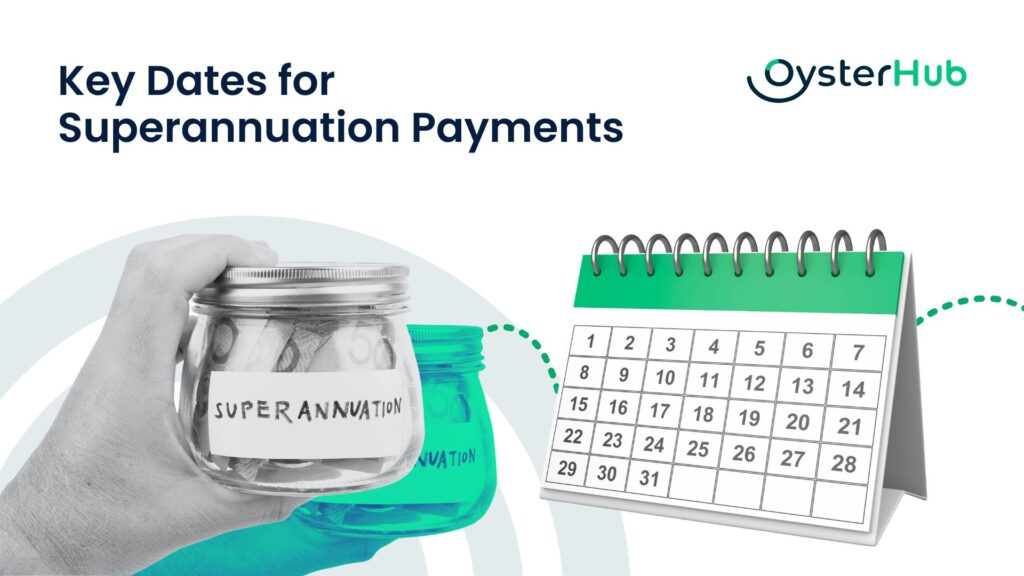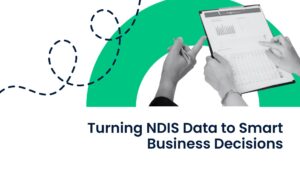Understanding super payment due dates is crucial for every employer in Australia. These deadlines play a significant role in the Australian fiscal year, ensuring that both employers and employees can secure a stable retirement future.
Key Takeaway: By comprehending and adhering to your super payment deadlines, you can safeguard a secure retirement for yourself and your employees. This article will guide you through everything you need to know about super payment due dates for 2023-2024, including:
- Superannuation Due Dates
- The consequences of non-compliance
- Super Guarantee Charge Statements
- Automated Super Payment Using XERO and Quickbooks
- Helpful tips for managing your contributions effectively
This comprehensive guide aims to position your business as compliant and proactive, ultimately contributing to a more stable retirement system for all Australians.
Superannuation Obligations for Employers
Employers have a crucial role to play in Australia’s superannuation system. They are legally required to regularly contribute to their employees’ eligible super funds. This applies to all employees who are 18 years old and above, regardless of whether they are full-time, part-time, casual workers, or temporary residents. If employees under 18 work more than 30 hours per week, the obligation also applies to them.
Legal Responsibilities
Here are the main obligations that employers need to fulfill:
- Super Guarantee (SG) Contributions: Employers must contribute a minimum percentage of an employee’s ordinary time earnings (OTE) to their super fund. The current rate is at least 11.5% and is set to increase up to 12% by 2025.
- Eligible Super Funds: These are funds that meet specific regulatory criteria. Employers should ensure that the funds they choose comply with the guidelines of the Australian Taxation Office (ATO) and provide long-term security for their employees’ retirement savings, taking into account super due dates each quarter.
- Award Rates: These rates can vary depending on the industry and the specific employment agreements in place. Employers often refer to these award rates to determine the minimum contribution amounts, ensuring they meet the superannuation guarantee due dates.
Understanding Award Rates
Award rates are crucial when it comes to calculating the amount of super contributions. They represent the minimum wage standards established by industrial awards and collective agreements across various sectors. Staying informed about these rates is essential to ensure compliance and fair contribution practices.
Employers must stay updated on any changes in laws or award conditions that might impact their superannuation obligations. Keeping accurate records and making timely contributions not only fulfill legal requirements but also build trust and loyalty among employees.
Quarterly Super Due Dates
Understanding quarterly super payments is crucial for compliance and effective financial planning. The Australian Taxation Office (ATO) requires employers to make super contributions at least once every quarter to meet the super and avoid penalties. Here are the specific deadlines for the 2023-2024 fiscal year:
| Quarter | Period | Payment Due Date |
|---|---|---|
| 1 | 1 July - 30 September | 28 October |
| 2 | 1 October - 31 December | 28 January |
| 3 | 1 January - 31 March | 28 April |
| 4 | 1 April - 30 June | 28 July |
Timely payments ensure employees’ retirement savings are invested promptly, benefiting from potential growth over time. Missing these deadlines can lead to penalties and additional charges under the Super Guarantee Charge (SGC) framework, which includes unpaid amounts, administration fees, and accrued interest—all avoidable by meeting your superannuation due dates 2024.
Automated Super Payments Using XERO and Quickbooks
Automating superannuation payments can significantly streamline your financial processes, ensuring compliance and accuracy. By integrating payroll systems with accounting software like XERO and Quickbooks Online, employers can manage their superannuation obligations efficiently.
If you need help setting up XERO and Quickbooks, talk to Oyster Hub Tax Accountants to help simplify your business super payments.
What are the due dates for paying the Super Guarantee Charge?
The SGC due dates for paying the Super Guarantee Charge are critical for employers who want to avoid penalties. Typically, employers are required to make guarantee contributions on a quarterly basis. These super guarantee contributions are due on the 28th day of the month following the end of each quarter. For instance, contributions for the July-September quarter are due by October 28.
Failure to meet these deadlines can result in the imposition of the Super Guarantee Charge, which is an additional penalty amount. It’s essential to make timely payments to avoid the super guarantee charge and stay compliant with regulations. Furthermore, missed or late super payments can lead to significant financial and administrative burdens for businesses. Ensuring that all contributions are made by the due dates helps in maintaining smooth operations and adhering to legal obligations.
Here are the deadlines for lodging the Superannuation Guarantee Charge Statement:
| Quarter | Super guarantee payment due date | Super guaratee charge and statement due date |
|---|---|---|
| 1 July - 30 September | 28 October | 28 November |
| 1 October - 31 December | 28 January | 28 February |
| 1 January - 31 March | 28 April | 28 May |
| 1 April - 30 June | 28 July | 28 August |
Managing Extra Contributions: The Role of Salary Sacrifice
Salary sacrifice arrangements offer a strategic way for employees to make additional pre-tax contributions to their superannuation. This involves an employee agreeing to forgo part of their future salary or wages in exchange for their employer making extra contributions to their super fund.
How Salary Sacrifice Works
- Agreement: An employee enters into an agreement with their employer to sacrifice a portion of their salary.
- Pre-Tax Contributions: The sacrificed amount is contributed directly to the employee’s super fund before income tax is applied, reducing the employee’s taxable income.
- Super Fund Deposit: The employer deposits the agreed-upon amount into the selected super fund.
Benefits and Considerations
Benefits for Employees
- Tax Efficiency: Align your strategy with due dates for super contributions for optimal financial planning.: Reduced taxable income can lead to significant tax savings.
- Increased Retirement Savings: Boosts overall super balance, enhancing retirement security.
Advantages for Employers
- Attracting Talent: Offering salary sacrifice as an option can help attract and retain employees looking for effective retirement planning solutions.
- Payroll Management: Simplifies payroll processing by channeling contributions directly into super funds.
Limitations to Consider
- Contribution Caps: Salary sacrifice contributions count towards the concessional (pre-tax) contributions cap, currently set at $27,500 per annum, and should be accounted for in your super payment dates 2024. Exceeding this cap could lead to additional tax liabilities.
- Impact on Take-Home Pay: Reducing take-home pay might affect day-to-day financial needs for employees.
Engaging in a salary sacrifice arrangement requires careful planning and understanding of both the immediate financial impact and long-term benefits.
Streamlining the Payment Process with a Small Business Superannuation Clearing House
A clearing house is a centralised platform that manages and distributes super contributions on behalf of employers. It makes handling multiple employee super payments easier by ensuring that each contribution reaches the correct super fund quickly.
Advantages of Using a Clearing House Service:
- Efficiency: Consolidate multiple transactions into one, reducing manual processing time.
- Accuracy: Minimises errors by automating data entry and payment distribution.
- Compliance: Ensures payments are made on time, helping avoid penalties associated with late contributions.
- Convenience: Provides an easy-to-use interface for managing all superannuation obligations in one place.
Getting Started with a Clearing House:
- Select a Clearing House Provider: Choose a provider that aligns with your business needs. The Australian Taxation Office (ATO) offers the Small Business Superannuation Clearing House (SBSCH) as a free option for eligible businesses, ensuring timely super payments are no longer an issue.
- Set Up an Account: Register your business and employees, providing necessary details such as TFNs and super fund information.
- Upload Contribution Data: Input or upload employee contribution data into the clearing house platform.
- Make Payments: Authorise payments through the clearing house, ensuring funds are transferred to respective super funds.
- Monitor Transactions: Regularly check transaction statuses and reports to confirm successful payments and ensure they’re received by the complying super fund.
By integrating a clearing house into your payroll processes, you can streamline super contributions, maintain compliance, and focus more on growing your business.
Consequences of Non-Compliance with Super Payment Due Dates

Failing to meet superannuation obligations can have significant repercussions for employers, especially if they do not fund until after the due dates. The Super Guarantee Charge (SGC) framework is designed to enforce compliance and ensure employees receive their super and other due entitlements.
Super Guarantee Charge (SGC) Framework:
- The SGC comprises the unpaid super amount, an administration fee, and interest, triggered by non-compliance with super due dates.
- Interest is calculated at 10% per annum, applied from the due date until payment is made.
- Administration fee of $20 per employee per quarter is charged for late payments, which emphasises the importance of adhering to your quarterly super due dates.
Financial Penalties and Interest:
Late super payments attract severe financial penalties:
- In addition to the SGC, employers may face additional fines imposed by the Australian Taxation Office (ATO) for consistent non-compliance.
- The interest component ensures that employees are compensated for the delay in their super contributions being invested.
Ensuring timely super payments avoids these penalties and promotes a secure retirement future for employees. Non-compliance not only impacts your business financially but can also damage your reputation as an employer.
Ensuring Accurate Records and Documentation

Maintaining thorough records is crucial for demonstrating compliance with super payment due dates and contribution requirements, particularly the superannuation guarantee due dates. Accurate documentation ensures that you can easily verify that all contributions are made on time and in full, protecting your business from potential penalties.
Key Aspects of Effective Record-Keeping:
1. Detailed Contribution Logs:
- Keep a record of each employee’s superannuation contributions, including the date, amount, and fund details per the due dates for super contributions.
- Ensure logs are updated regularly to reflect any changes in employment status or salary.
2. Reconciliation Practices:
- Regularly reconcile your payroll records with superannuation payments to identify discrepancies early.
- Use accounting software that integrates with your payroll system for streamlined reconciliation.
3. Superannuation Choice Forms:
- Store completed Superannuation Standard Choice Forms securely.
- Update records whenever an employee changes their nominated super fund to ensure accuracy for superannuation due dates 2024. Ensure compliance with super due dates each quarter.
4. Compliance Measures:
- Set reminders for quarterly payment deadlines to avoid missing due dates.
- Conduct periodic audits to ensure all records meet the Australian Taxation Office (ATO) requirements.
5. Documentation Tools:
- Utilise digital tools such as cloud-based accounting software to maintain and back up records.
- Implement secure storage solutions for physical documents to prevent data loss.
By following these record-keeping practices, you not only show that you’re compliant but also improve the efficiency of your financial operations. Trustworthy documentation allows for quick access to information during audits and helps maintain a clear financial overview of your business’s obligations, especially around key superannuation due dates 2024.
Resources for Staying Up to Date with Superannuation Changes
Navigating the ever-evolving landscape of superannuation can be challenging. The Australian Taxation Office (ATO) offers a range of valuable resources to help employers stay compliant and make informed decisions about their super contributions.
Key ATO Resources:
- Official Guidelines: The ATO provides comprehensive guidelines that outline employer obligations, contribution rules, and recent legislative changes.
- Online Calculators: These tools assist in accurately calculating super contributions, helping you ensure compliance with award rates and avoid costly errors. Additionally, verifying super contributions for eligible employees can further enhance accuracy. Meeting the super payment due dates is crucial for accuracy.
- Superannuation Standards Choice Form: This essential document helps you determine the eligible super fund for employee contributions, ensuring that you meet legal requirements.
- Educational Webinars and Workshops: The ATO often hosts events to educate employers on best practices and updates in the superannuation system.
Conducting regular financial reviews is crucial for aligning your super contributions with your overall business strategy. By periodically assessing your financial health, you can:
- Identify any discrepancies or areas for improvement in your super payment processes.
- Ensure that your contribution amounts reflect current legislation and award rates.
- Optimise cash flow management by integrating super obligations into broader financial planning.
These proactive steps not only support compliance but also contribute to the financial stability of your business and the well-being of your employees’ retirement savings.
Conclusion
Key Points to Remember:
- Meeting super payment deadlines is crucial to ensure compliance with other super funds. ensures compliance and helps avoid financial penalties.
- Staying proactive and informed about due dates contributes to a more stable retirement system for all Australians.
By understanding the consequences of non-compliance, you can safeguard both your financial future and that of your employees. Make superannuation a priority, and you’ll help build a secure future for everyone involved. Timely action is crucial, especially considering the due dates for super contributions.
Ensure your business is compliant and your employees’ retirement savings are secure. Contact Oyster Hub’s tax experts for guidance on superannuation obligations. Book a consultation today or reach out to us at (02) 9158 5444.
Super Due Date for Superannuation FAQs
The December quarter super due date for 2023 is January 28, 2024. This is the date by which you must ensure that contributions are received by the super fund.
The quarterly super payment due dates for 2024 are as follows: January 28, 2024, for the December quarter; April 28, 2024, for the March quarter; July 28, 2024, for the June quarter; and October 28, 2024, for the September quarter.
The quarterly payment due date for the first quarter is on 28 January 2024. Another super guarantee contribution payment due date is on 28 April 2024 for the second quarter. The due date may not reach the super if the employee's super contribution is delayed. It's essential for payments to reach the super fund before missing an sg due date to ensure compliance with other super regulations. The third quarter superannuation payment dates 2024 are on 28 July 2024.
If a super due date falls on a weekend or public holiday, the payment is due on the next business day.
If you miss the super due date, you may be liable for the superannuation guarantee charge (SGC). This charge includes a penalty and is payable to the Australian Taxation Office (ATO). It's important to make super contributions on time to avoid this charge.
To ensure that your super contributions are received by the super fund on time, it's advisable to make payments several days before the due date. This accounts for any processing delays and ensures compliance with the quarterly super payment due dates.
A superannuation standard choice form is a document that allows eligible employees to choose their preferred super fund. Employers must provide this form to new employees within 28 days of their start date or when an existing employee requests to change their super fund.
Yes, there are several due date considerations for super contribution payments in 2024. For instance, ensure contributions for the March quarter are made by April 28, 2024, and remember that payments should be submitted early if the due date falls on a weekend or public holiday.
Not paying the super guarantee by the due dates can result in having to pay the superannuation guarantee charge (SGC), which includes the unpaid super contributions, interest, and an administration fee. This charge is submitted to the ATO.
Yes, you can pay super contributions more frequently than quarterly, helping you to meet the super due date 2024. Many employers choose to pay monthly to manage cash flow and ensure contributions reach the super fund on time.
The key super lodgement dates for 2024 include the quarterly due dates: January 28 for the December quarter, April 28 for the March quarter, July 28 for the June quarter, and October 28 for the September quarter. Meeting these dates ensures compliance and avoids penalties.




















